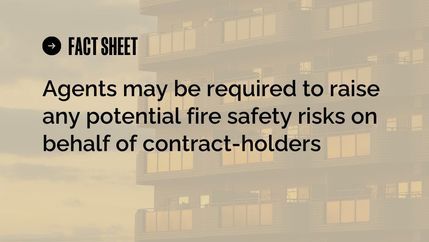English Housing Survey shows professional agents vital to raising housing standards
Housing quality and energy efficiency underline the progress made, and the scale of the challenges still facing the sector is the headline finding in the EHS (English Housing Survey). Policy ambitions must have clear guidance, realistic timescales, workable exemptions, and sustained funding to reflect the diversity of the housing stock. Active involvement by qualified property professionals is also a must if raising standards is to be achieved.
Faulty insulation has left households financially exposed
A House of Commons Public Accounts Committee report states that the UK Government’s energy efficiency installation initiative has suffered serious failings at every level, leaving more than 30,000 homes with defects after external and internal wall insulation was installed through ECO4 and the Great British Insulation Scheme.
Decent Homes Standard 2035: criteria for compliance and exemptions confirmed
After a sustained consultation with members and a Propertymark campaign, the UK Government has confirmed an enforcement date of 2035 for the Decent Homes Standard in the PRS. Key exemptions and removal of age-based replacement rules have also been confirmed in a UK Government statement on 28 January 2026.
Scotland's Awaab's Law set to strengthen action on damp and mould
New regulations have been laid in the Scottish Parliament which, if passed, will place clearer and more time-bound duties on landlords and agents to investigate and address damp and mould in both private and social rented homes. Clear standards, realistic timescales and consistent enforcement are essential if these reforms are to improve housing conditions without reducing supply or creating unintended consequences.
Expanded upgrades and fresh funding to boost clean heating drive
The 2025 Autumn Budget confirmed a new £1.5 billion allocation for the Warm Homes Plan, intended to support insulation and low-carbon heating upgrades across England. According to the UK Government, the funding will target households in the least efficient homes, as part of a long-term ambition to upgrade up to five million properties.
New guidance sets benchmark for the future of Healthy Homes
Homes England’s latest edict on building specifications and best-practice sets out a modern blueprint for housing that is energy-efficient, moisture-resilient, comfortable, and easy to live in. While formally aimed at the social and affordable housing sectors, the scale of Homes England-funded delivery and its influence on design culture mean its impact will be felt far beyond those boundaries.
Take five minutes to test alarms ahead of Carbon Monoxide Awareness Week
Checking carbon monoxide (CO) alarms and heating systems can help prevent avoidable tragedies. Known as the ‘silent killer’, CO has no smell, taste, or colour, yet even small amounts can be fatal. Hundreds of people are hospitalised each year due to this poisoning, and many could be prevented with simple maintenance and alarm checks.
The stopwatch issue - preparing for Awaab's Law in the PRS
From 27 October 2025, fixed, enforceable timeframes will be in place for social landlords in England to investigate, make safe and start prevention works to address hazards (including damp and mould), with powers to require alternative accommodation if a home can’t be made safe in time. Similar requirements are set to be extended to the private rented sector (PRS), so now is the time for agents to adopt best practice, future-proof their businesses, and protect tenants and properties.
Stronger fire safety framework needed to protect tall buildings
Propertymark has responded to the Government of Jersey’s consultation on new Fire Precautions (Tall Residential Buildings) Regulations, which will extend protections to around 8,500 islanders living in 125 high-rise homes. The proposed framework would cover buildings over 11 metres in height and introduce measures drawn from the Grenfell Tower Inquiry Phase 1, including stricter duties for building owners and managing agents.
Building safety evidence session sees agent voices heard
As the Senedd examines the Building Safety (Wales) Bill, Propertymark’s Head of Policy and Campaigns, Timothy Douglas, set out members’ priorities to ensure the new framework is practical, proportionate, and aligned with existing regulations.
Wales must learn from mistakes in England to polish Building Safety Bill
Stage 1 scrutiny of the Bill is underway in the Senedd Local Government and Housing Committee, and Propertymark is set to give evidence in person on 9 October. We have also submitted written feedback, outlining how the legislation can be improved to ensure it achieves its aims.
Member feedback delivered on Decent Homes Standard
Propertymark has submitted a detailed response to the UK Government consultation based on roundtables and surveys with agents across England. Our engagement shows that most properties managed by our members are already largely compliant. However, the extension of the Decent Homes Standard (DHS) will bring new obligations, particularly around damp and mould, safety measures, and clearer repair thresholds. We support a data-driven, proactive approach to property management that considers tenant experience.
False Autumn, Real Risk: why winter prep starts now for agents and landlords
This year, trees across Britain began shedding leaves weeks ahead of schedule. At a glance, it might seem like a charming sign of an early autumn - in reality, it’s a stress response. Propertymark Industry Supplier, Inventory Base, explains why this subtle ecological shift has very real consequences for the lettings sector.
Propertymark Supports Gas Safety Week 2025
We are proud to renew our support for the annual safety campaign, which is running from 8–14 September 2025. Coordinated by the Gas Safe Register, the week raises awareness of the importance of gas safety and highlights what individuals can do to protect themselves, their clients, and their communities. This year’s theme, “Looking after your home, friends, and family”, emphasises that gas safety is everyone’s responsibility. Agents, landlords, and homeowners can all take small steps which make a big difference in keeping people safe.
Progress realistic reforms to achieve higher standards, Propertymark tells MPs
The Housing, Communities and Local Government (HCLG) Committee inquiry into housing conditions in England focuses on the proposed extension of the Decent Homes Standard and the application of Awaab’s Law across social housing and the private rented sector (PRS). Evidence gathered from Propertymark members demonstrates why current initiatives do not go far enough to drive up standards or consistently protect tenants. Reforms must be proportionate, backed by strong enforcement, and packaged with meaningful support for agents and their landlords.
Fact Sheet: Building Safety (Wales) Bill
The Building Safety (Wales) Bill sets regulations for the occupation phase of buildings. Propertymark members managing and letting individual flats within these buildings should be mindful of any requirements for residents, so that any key documents for contract-holders can be provided.















